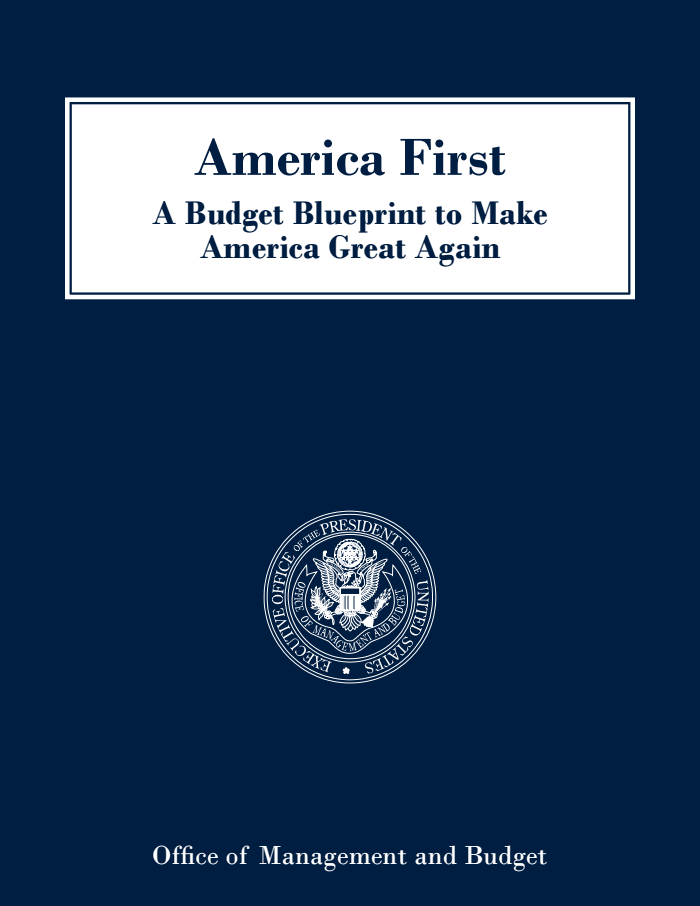
WASHINGTON — President Trump will ask Congress for funding to protect the border and construct a wall — a major campaign promise — in a budget expected to be released Thursday morning.
The administration will request a boost in funding for the Department of Homeland Security to enhance border security along with about $2.6 billion in the 2018 budget and a supplemental $1.5 billion in initial funding to construct the wall, Office of Management and Budget Director Mick Mulvaney told reporters during a conference call.
Mulvaney said that the money would be coming from the US Treasury and not Mexico, unlike what Trump said during the campaign. On which part of the wall that money will build and where, he said: "We don’t know the answer to that question... It allows us to start the program." He added that the money could be used to test "pilot cases" of types of wall in different areas.
The president's budget is a wish list of sorts and it will be up to Congress to either approve it or craft a spending bill that ultimately becomes law. Democrats are unlikely to back funding for the wall and some Republicans have already signaled opposition to some of the cuts proposed. Funding for the government runs out in late April.
"Our aim is to meet the simple, but crucial demand of our citizens — a Government that puts the needs of its own people first," Trump wrote in his note to Congress.
Overall, the proposed budget, Mulvaney said, would increase defense spending by $54 billion and cut the State Department's budget by roughly 28%.
"This is the America First budget and in fact we wrote it using the president’s own words...the president ran saying he would spend less money overseas and more at home," Mulvaney said explaining the cut to the State Department, adding that the reductions would come from foreign aid and won't affect the "core diplomatic functions" of the department.
"If he talked about it during the campaign, you’ll see it in the budget," Mulvaney said.
The budget would also make significant cuts to other agencies that Trump described as a way to fulfill his promise of cutting wasteful spending. In his note to Congress, he called these cuts "sensible and rational".
The budget blueprint calls for the elimination of funding for several independent agencies including the Corporations for Public Broadcasting, the National Endowment of the Arts, the Institute of Museum and Library Services, and several others.
Among those agencies that would see the biggest cuts in this proposed budget are the Environmental Protection Agency, the Department of Agriculture, the State Department, and the Department of Health and Human Services. The agencies that would see increases in funding are the departments of Transportation, Veterans Affairs, Defense, and Homeland Security.
The Environmental Protection Agency is the leader for proposed cuts with a 31% reduction that includes the elimination of funding for the Clean Power Plan, international climate change programs, and climate change research and partnership programs.
The Department of Agriculture would see the second-biggest reduction, just behind the Environmental Protection Agency, with proposed cuts of 21% or $4.7 billion under the budget. While it maintains a healthy amount of funding for programs like WIC, a nutritional supplemental program for women, infants, and children, it seeks to reduce funding for federal land acquisitions in the National Forest System and eliminate and reduce what the administration sees as redundancies within the agency.
The Department of Health and Human Services would also see a significant reduction in funding with a 17.9% decrease from the appropriated legislation from 2017 to $69 billion total.
It includes reduced funding for the National Institute of Health by $5.8 billion, bringing it to $25.9 billion. It also suggests a reorganization of the institute to “help focus on the highest priority research and training activities,” and thus proposes the elimination of the Fogarty International Center, and the consolidation of the Agency for Healthcare Research and Quality.
The budget also proposes taking away $403 million from “health professions and nursing training programs, which lack evidence that they significantly improve the Nation’s health workforce.”
But Trump proposes to bolster money allocated to substance abuse recovery programs, particularly for those struggling with opioid addiction. The budget suggests a $500 million increase to “expand opioid misuse prevention efforts and to increase access to treatment and recovery services.”
Here's the entire proposed budget:

